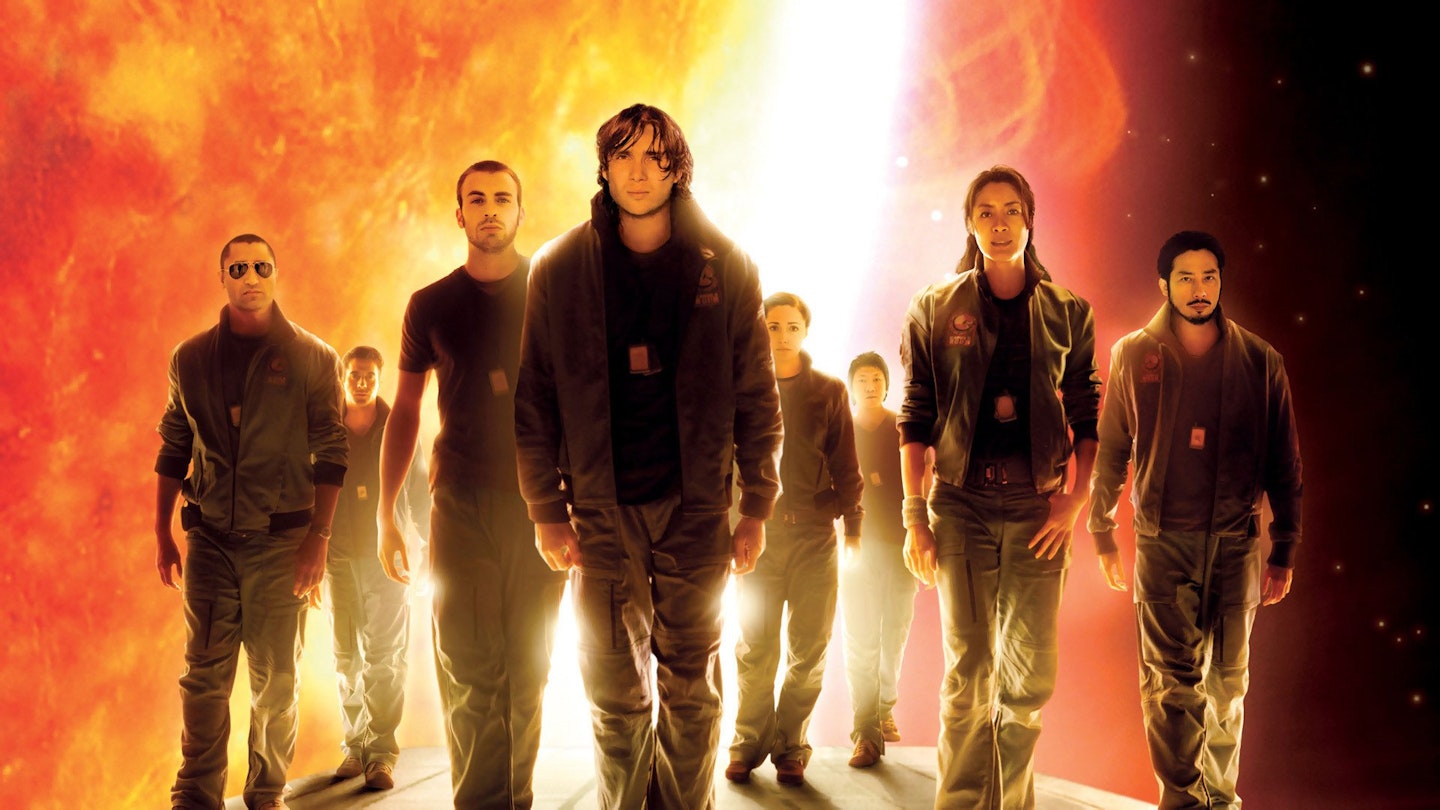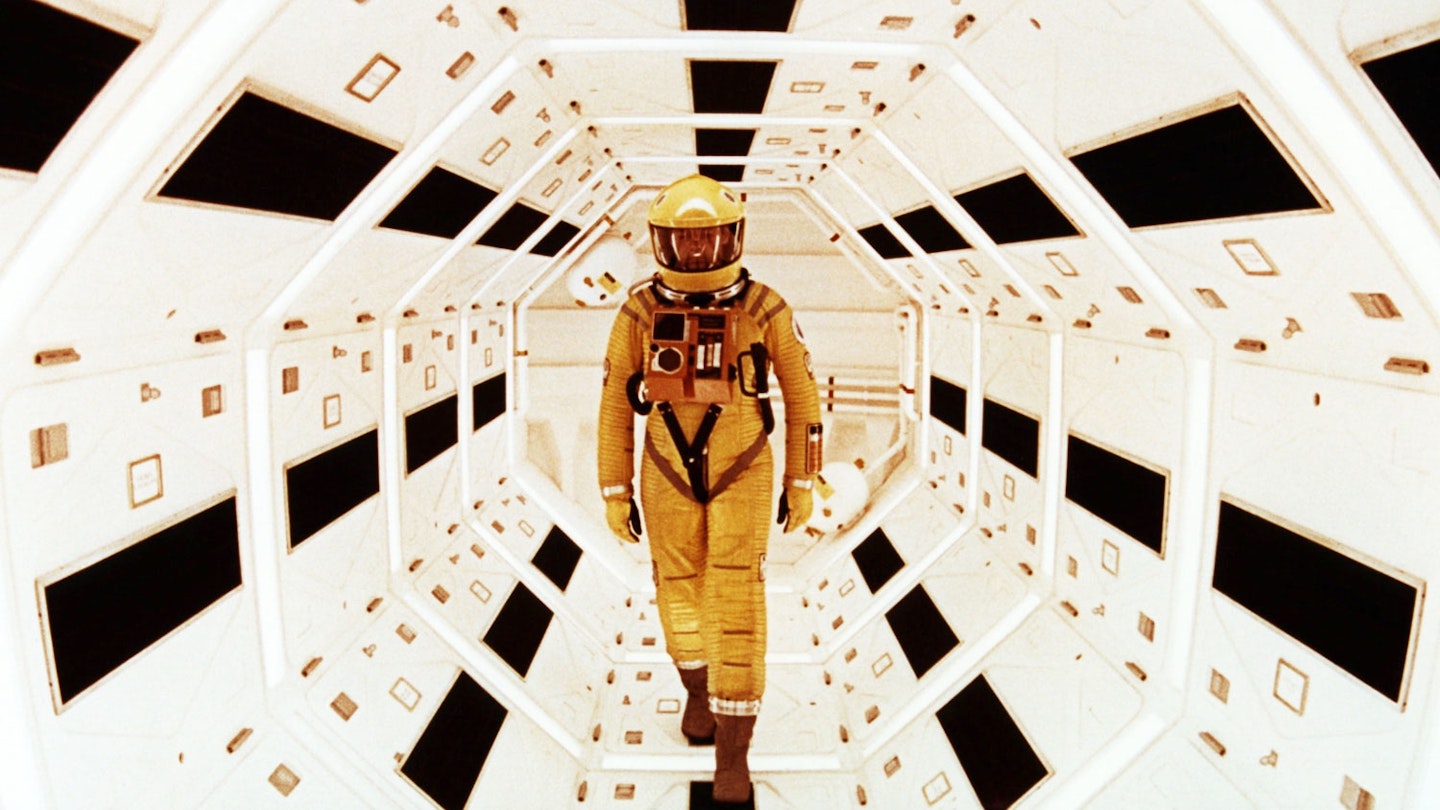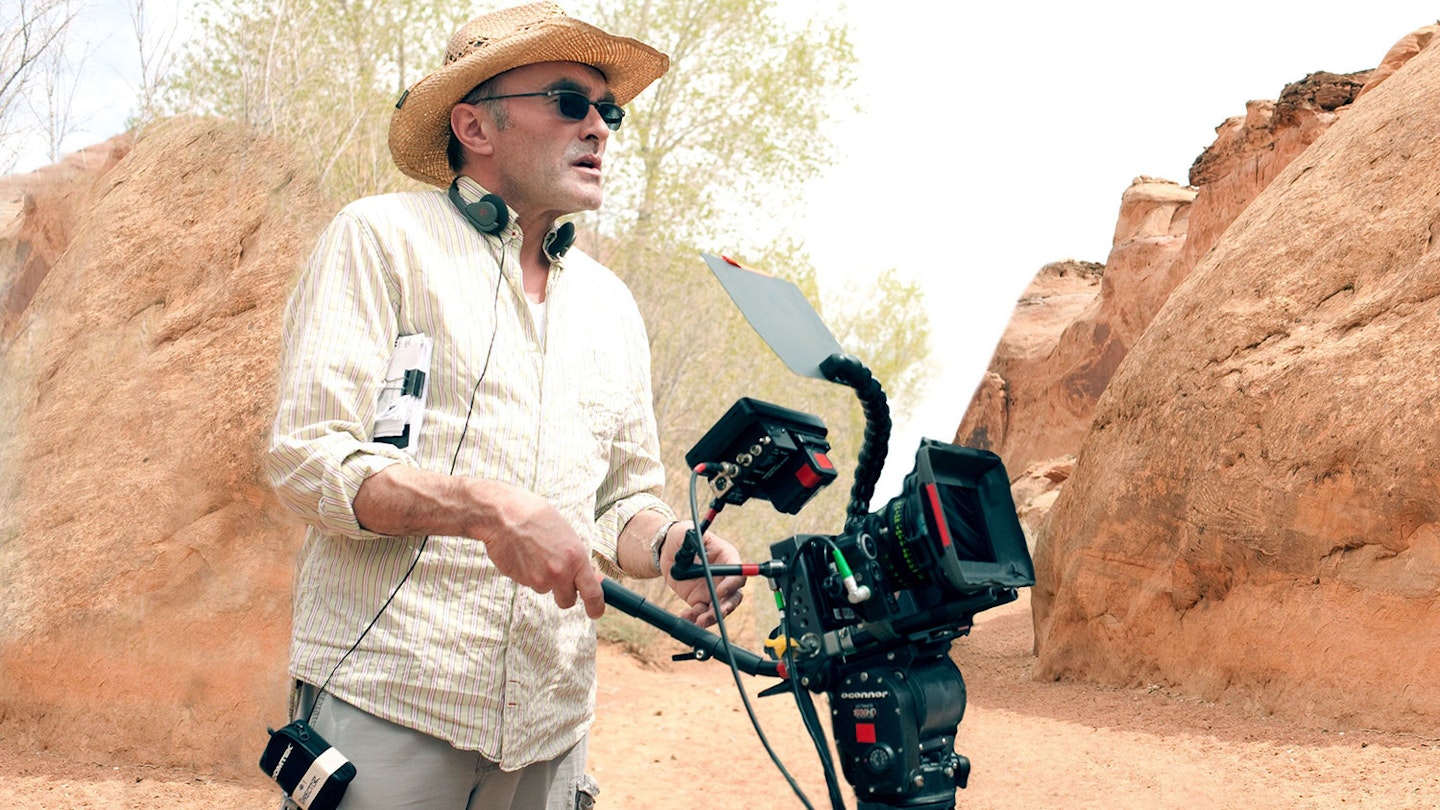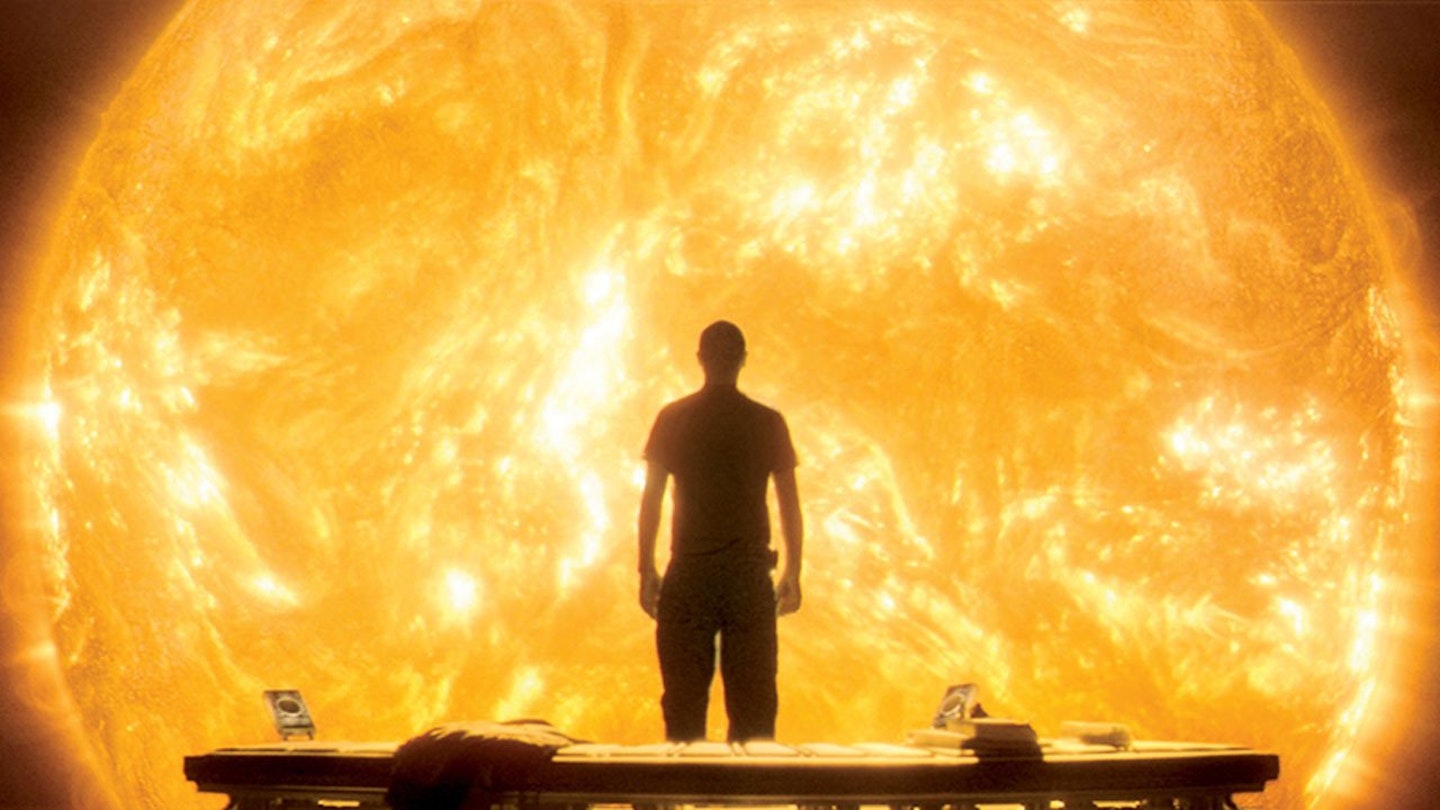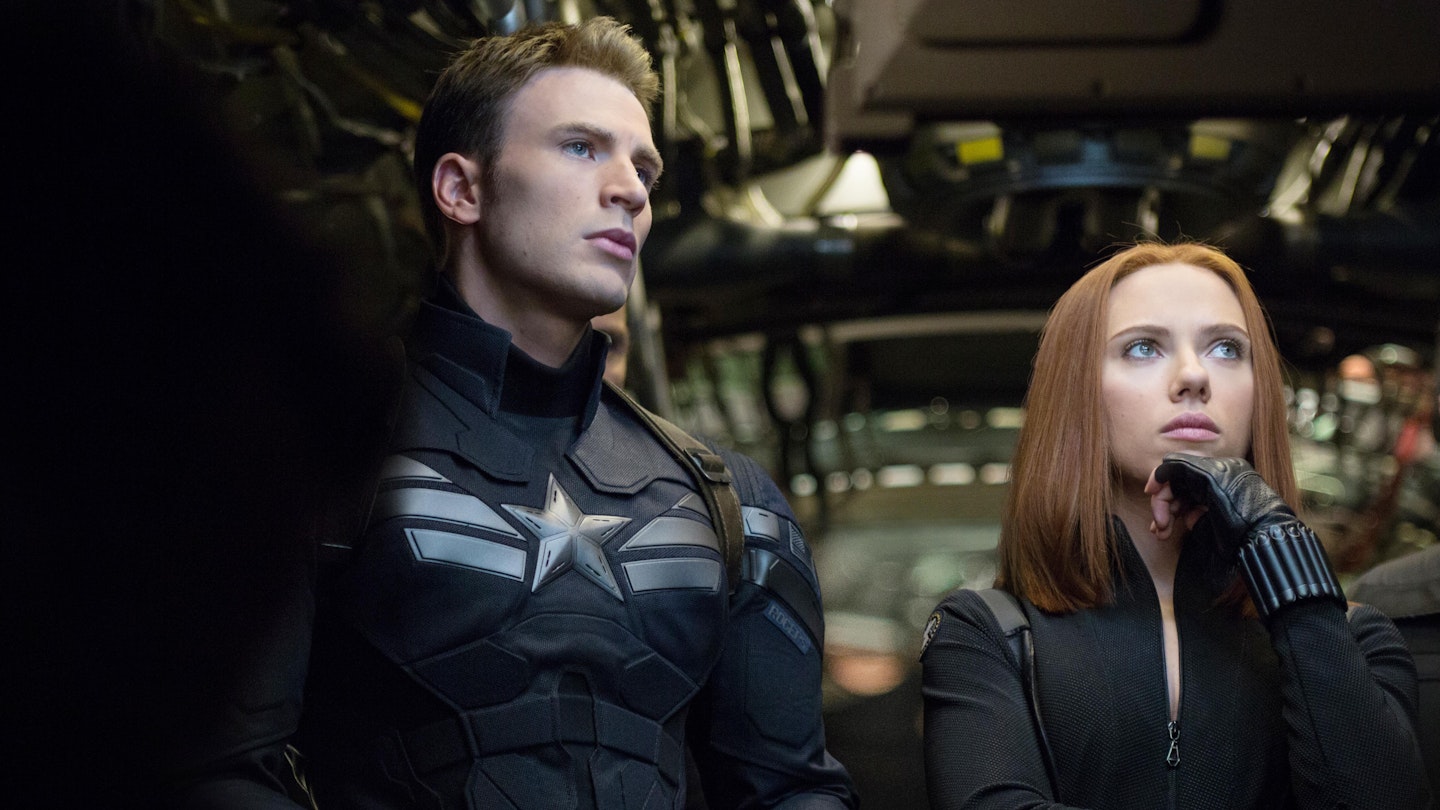The tagline of a movie very close to Danny Boyle’s heart once said, “In space, no-one can hear you scream.” Yet, for as long as there have been distant spots in the galaxy to boldly pootle around in, many have given it a bloody good go. In cinematic lore the great wide nothing will drag any manner of spook, beasty or creeping madness from its infinite corners to entice people to fruitlessly shriek their lungs into its murky vacuum — and there’s enough terror and screaming in Boyle’s latest genre-hop to make the distant neighbours at least contemplate banging a broom on the ceiling.
Boyle has never made any secret of his reverence for Ridley Scott’s Alien, and he’s clearly stuck close to his master’s teachings for his venture into the claustrophobia of spaceship living, all aggressively hissing pistons and clangy corridors stretching darkly into certain doom. But he has employed a monster not really designed for hiding in cupboards or, indeed, the dark — the sun. Using the provider of all life as our ultimate enemy — what happens when it sputters out? — is a fantastically clever idea. In fact, it’s one so clever that Boyle ultimately stumbles a little in trying to deliver a conclusion that satisfactorily lives up to his bold set-up. But that’s not to say he doesn’t offer his viewers a terrific time getting there.
Sunshine starts with rocket-like velocity. There’s no time for pre-take-off preamble or significant character work; a slight shame since the brief running time could have allowed it without seeming bloated. There are people to be slain and minds to be boggled and not a great deal of time in which to do it. After a brilliant ‘look at me, mum’ opening shot that leaves the rest of the film a great deal with which to live up, Boyle thrusts his audience immediately among the crew of the Icarus II, a fleet of recognisable, but not stratospherically famous, faces — Michelle Yeoh, the dad from Whale Rider, the Human Torch, the girl who boffed Achilles in Troy and Cillian Murphy, mad stary eyes set to Losing It — that suggest that any one of them could buy the farm once things start going awry. As they swiftly and spectacularly do.
Be warned: on entering the cinema, do not stop at the refreshment stand, nor consume any volume of liquid that cannot be held in a thimble or very small and tremulous bladder. Breaks for urination will not be an option, although frightened Y-front dampening may be unavoidable. The first hour provides absolutely zero let-up and only occasional opportunities to exhale. If someone’s not dying, they’re running, crying or just freaking out.
Events take a turn for the disastrous as soon as the crew realises that the ship they were sent to replace hasn’t disappeared at all and is in actuality sitting basking in the rays of the sun. And with little care for the fact that this type of heroism almost never ends well in sci-fi movies, they set off to rescue it. The ensuing madness makes two things very obvious: a) Danny Boyle is world-class in white-knuckle cinema, and b) there is really no such thing as a new idea in sci-fi.
If indeed the film gave you time to ponder similarities to sci-fi movies past, which it categorically does not, you might find yourself thinking, “Ooh, that’s a bit like Alien”/“I remember that from 2001”/“Gosh, how very Event Horizon”/“Lorks, that’s the spit of Solaris” (if you’re particularly pretentious). Alex Garland, whose zippy 28 Days Later script made marauding zombies seem like an almost brand-new idea, has written a script high on drama, but also high on sci-fi archetype. There’s the noble captain, obsessed with the lost ship that went before and putting the mission above all else; a cowardly second-in-command; a bit where the airlock goes wrong; lots of spinny, flashing lights and an onboard computer that sounds like a particularly patient but unhelpful Linguaphone tape. None of these should significantly spoil anyone’s enjoyment of the film, but it does beg the question of whether the relatively narrow genre of People Go Mad In Space has reached creative critical mass. Do the limitless realms of space and the human psyche paradoxically only offer a finite number of ways for people to go bonkers?
Of course, such considerations will only be made after the credits roll, because Boyle’s far too busy wringing you dry of perspiration and sensibility before that. There is now apparently no genre in which he does not excel — bar possibly romantic comedy, A Life Less Ordinary being a bit, well, rubbish. His love of Alien shines through, because he’s mastered the art of getting every last drop of spooky out of even the smallest of shadows, and turning the simple act of breathing into something to be watched through the fingers. He’s also crafted a film that is utterly breathtaking to behold.
Boyle will almost certainly be desperately unpopular with future action directors. He’s taken a budget of around $40 million and produced a film of near faultless visual gloss and shimmery sophistication, with production values that appear well outside his price range. It’s the equivalent of taking a few old toilet rolls, some fuzzy Sellotape and belly-button lint and producing the Mona Lisa. But with more flames and less enigmatic smirking. It’s impossible to see where reality ends and computer begins and, as it was our understanding that fire was one of the last great CG hurdles, we can consider that one clearly leapt.
Speaking of flames, Sunshine should be conclusive proof that Chris Evans, aka the Fantastic Four’s Johnny Storm/Human Torch, is on his way to astronomical action fame. Possessed of a brusque charisma and an overdose of testosterone, he’s the kind of man that will make women go weak at the knicker elastic and men tragically pretend to be him when they think nobody’s looking. Murphy, doing his heroically wimpy thing with unblinking urgency, may be as close as the film has to a lead, but it’s Evans who emerges as its star.
As the tension racks up and the bodycount mounts, it seems we could be on our way to a genre classic. But then the finale is fumbled. To tell you how would ruin the film, but in the grand tradition of sci-fi, the ending makes no particular sense. Perhaps it’s deliberately enigmatic, and it does invite a great deal of post-viewing debate, but since the tone of most that has gone before is not particularly of a 2001-alike existential nature, it’s a little jarring. The lack of scientific fact we can happily overlook (wouldn’t the ship melt that close to the sun?), but the complete disengagement with reality is less than it deserves, which means that this otherwise gripping film leaves with a quiet fizzle rather than a big bang.
